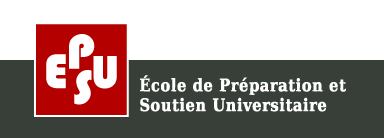Réduction de la teneur en farine et en huile de poisson dans l'alimentation de la truite arc-en-ciel en filière biologique : effets sur la croissance, l'utilisation des nutriments et la qualité des produits // Reduction of fish meal and fish oil content i
|
ABG-132764
ADUM-66811 |
Thesis topic | |
| 2025-07-03 |
Université de Pau et des Pays de l'Adour
Saint-Pée-sur-Nivelle - Nouvelle Aquitaine - France
Réduction de la teneur en farine et en huile de poisson dans l'alimentation de la truite arc-en-ciel en filière biologique : effets sur la croissance, l'utilisation des nutriments et la qualité des produits // Reduction of fish meal and fish oil content i
- Earth, universe, space sciences
Nutrition, Poissons, Alimentation
Nutrition, Fish, Feeding
Nutrition, Fish, Feeding
Topic description
Pour répondre à une demande alimentaire croissante, les systèmes de production doivent évoluer afin de garantir un approvisionnement suffisant en aliments sains et nutritifs, tout en étant durables, résilients et compétitifs. L'aquaculture biologique, bien qu'elle présente de nombreux avantages, rencontre des obstacles significatifs à son développement, notamment sa dépendance élevée aux ressources marines et l'interdiction d'utiliser des acides aminés synthétiques dans l'alimentation. Néanmoins, la nécessaire réévaluation des besoins nutritionnels des poissons, ainsi que l'élargissement des matières premières et des additifs disponibles pour la formulation des aliments biologiques, offrent de nouvelles perspectives d'évolution de l'alimentation en aquaculture biologique. Dans ce contexte, le défi de ce projet de thèse consiste à définir de nouveaux aliments biologiques pour la truite arc-en-ciel en recherchant un compromis entre les avantages environnementaux liés à la réduction des farines et des huiles de poisson et la préservation des performances zootechniques et de la santé des animaux. Le premier objectif de ce projet sera de comparer les performances de poissons nourris avec les aliments biologiques actuels avec celles obtenues avec les aliments utilisés en aquaculture conventionnelle. Il s'agira ensuite de proposer de nouvelles formulations d'aliments aquacoles biologiques à plus faibles teneurs en farine et en huile de poisson et d'en évaluer la valeur nutritionnelle chez la truite par rapport aux aliments biologiques actuels. Enfin, nous évaluerons si la lignée de truite SUAVE, initialement sélectionnée pour sa capacité à utiliser les aliments végétaux, mais qui montre finalement une meilleure croissance avec une large gamme d'aliments, est mieux adaptée à ces nouveaux aliments aquacoles biologiques.
------------------------------------------------------------------------------------------------------------------------------------------------------------------------
------------------------------------------------------------------------------------------------------------------------------------------------------------------------
To meet growing food demand, production systems must evolve to ensure a sufficient supply of healthy and nutritious food, while remaining sustainable, resilient, and competitive. Although organic aquaculture offers many advantages, it faces significant development challenges, particularly its high dependency on marine resources and the prohibition of synthetic amino acids in feed formulations. However, the necessary reevaluation of fish nutritional requirements, along with the expansion of available raw materials and authorized additives in organic production, opens new perspectives for improving organic aquaculture feeds. In this context, the challenge of this PhD project is to define new organic diets for rainbow trout, seeking a balance between the environmental benefits of reducing fishmeal and fish oil and maintaining zootechnical performance and animal health. The first objective will be to compare the performance of fish fed current organic feeds with those fed conventional aquaculture diets. Next, the project will develop new organic feed formulations with lower levels of fishmeal and fish oil and assess their nutritional value for rainbow trout relative to current organic feeds. Finally, we will evaluate whether the SUAVE trout strain originally selected for its ability to utilize plant-based diets but showing strong growth across a range of feeds is better suited to these new organic aquaculture diets.
------------------------------------------------------------------------------------------------------------------------------------------------------------------------
------------------------------------------------------------------------------------------------------------------------------------------------------------------------
Début de la thèse : 01/10/2025
WEB : https://www.euaqua.org/
------------------------------------------------------------------------------------------------------------------------------------------------------------------------
------------------------------------------------------------------------------------------------------------------------------------------------------------------------
To meet growing food demand, production systems must evolve to ensure a sufficient supply of healthy and nutritious food, while remaining sustainable, resilient, and competitive. Although organic aquaculture offers many advantages, it faces significant development challenges, particularly its high dependency on marine resources and the prohibition of synthetic amino acids in feed formulations. However, the necessary reevaluation of fish nutritional requirements, along with the expansion of available raw materials and authorized additives in organic production, opens new perspectives for improving organic aquaculture feeds. In this context, the challenge of this PhD project is to define new organic diets for rainbow trout, seeking a balance between the environmental benefits of reducing fishmeal and fish oil and maintaining zootechnical performance and animal health. The first objective will be to compare the performance of fish fed current organic feeds with those fed conventional aquaculture diets. Next, the project will develop new organic feed formulations with lower levels of fishmeal and fish oil and assess their nutritional value for rainbow trout relative to current organic feeds. Finally, we will evaluate whether the SUAVE trout strain originally selected for its ability to utilize plant-based diets but showing strong growth across a range of feeds is better suited to these new organic aquaculture diets.
------------------------------------------------------------------------------------------------------------------------------------------------------------------------
------------------------------------------------------------------------------------------------------------------------------------------------------------------------
Début de la thèse : 01/10/2025
WEB : https://www.euaqua.org/
Funding category
Funding further details
Financement d'un établissement public Français
Presentation of host institution and host laboratory
Université de Pau et des Pays de l'Adour
Institution awarding doctoral degree
Université de Pau et des Pays de l'Adour
Graduate school
211 Sciences Exactes et leurs Applications
Candidate's profile
Formation recommandée : Master 2 en biologie, aquaculture, nutrition animale ou ingénieur-e agro.
Connaissances souhaitées (domaines à connaitre) : nutrition, physiologie des poissons, expérimentation animale, analyses biochimiques et/ou moléculaires.
Aptitudes recherchées : enthousiasme et curiosité, autonomie, rigueur scientifique, bon relationnel, capacités d'organisation et de travail en équipe, goût pour le travail expérimental, bonne maîtrise des statistiques, capacité de rédaction scientifique en français et en anglais.
Recommended education: Master's degree (MSc) in Biology, Aquaculture, Animal Nutrition, or Agricultural Engineering. Areas of expertise required (relevant fields): Nutrition, Fish Physiology, Animal Experimentation, Biochemical and/or Molecular Analyses. Required skills: Enthusiasm and curiosity, autonomy, scientific rigor, good interpersonal skills, organizational ability and teamwork, interest in experimental work, good use of statistics, and scientific writing skills in both French and English.
Recommended education: Master's degree (MSc) in Biology, Aquaculture, Animal Nutrition, or Agricultural Engineering. Areas of expertise required (relevant fields): Nutrition, Fish Physiology, Animal Experimentation, Biochemical and/or Molecular Analyses. Required skills: Enthusiasm and curiosity, autonomy, scientific rigor, good interpersonal skills, organizational ability and teamwork, interest in experimental work, good use of statistics, and scientific writing skills in both French and English.
2025-07-18
Apply
Close
Vous avez déjà un compte ?
Nouvel utilisateur ?
More information about ABG?
Get ABG’s monthly newsletters including news, job offers, grants & fellowships and a selection of relevant events…
Discover our members
 CASDEN
CASDEN  ASNR - Autorité de sûreté nucléaire et de radioprotection - Siège
ASNR - Autorité de sûreté nucléaire et de radioprotection - Siège  PhDOOC
PhDOOC  Laboratoire National de Métrologie et d'Essais - LNE
Laboratoire National de Métrologie et d'Essais - LNE  MabDesign
MabDesign  ONERA - The French Aerospace Lab
ONERA - The French Aerospace Lab  Institut Sup'biotech de Paris
Institut Sup'biotech de Paris  MabDesign
MabDesign  ANRT
ANRT  SUEZ
SUEZ  TotalEnergies
TotalEnergies  Généthon
Généthon  Groupe AFNOR - Association française de normalisation
Groupe AFNOR - Association française de normalisation  ADEME
ADEME  CESI
CESI  Nokia Bell Labs France
Nokia Bell Labs France  Ifremer
Ifremer  Aérocentre, Pôle d'excellence régional
Aérocentre, Pôle d'excellence régional  Tecknowmetrix
Tecknowmetrix
-
JobRef. 132696Montreal, CanadaMcGill University
Post-doctoral position in medicinal chemistry
Scientific expertises :Chemistry - Biochemistry
Experience level :Junior
-
JobRef. 132742Genève, Switzerland
 EPSU
EPSUProfesseur de Biologie UP à Genève
Scientific expertises :Biology - Biochemistry - Chemistry
Experience level :Confirmed





